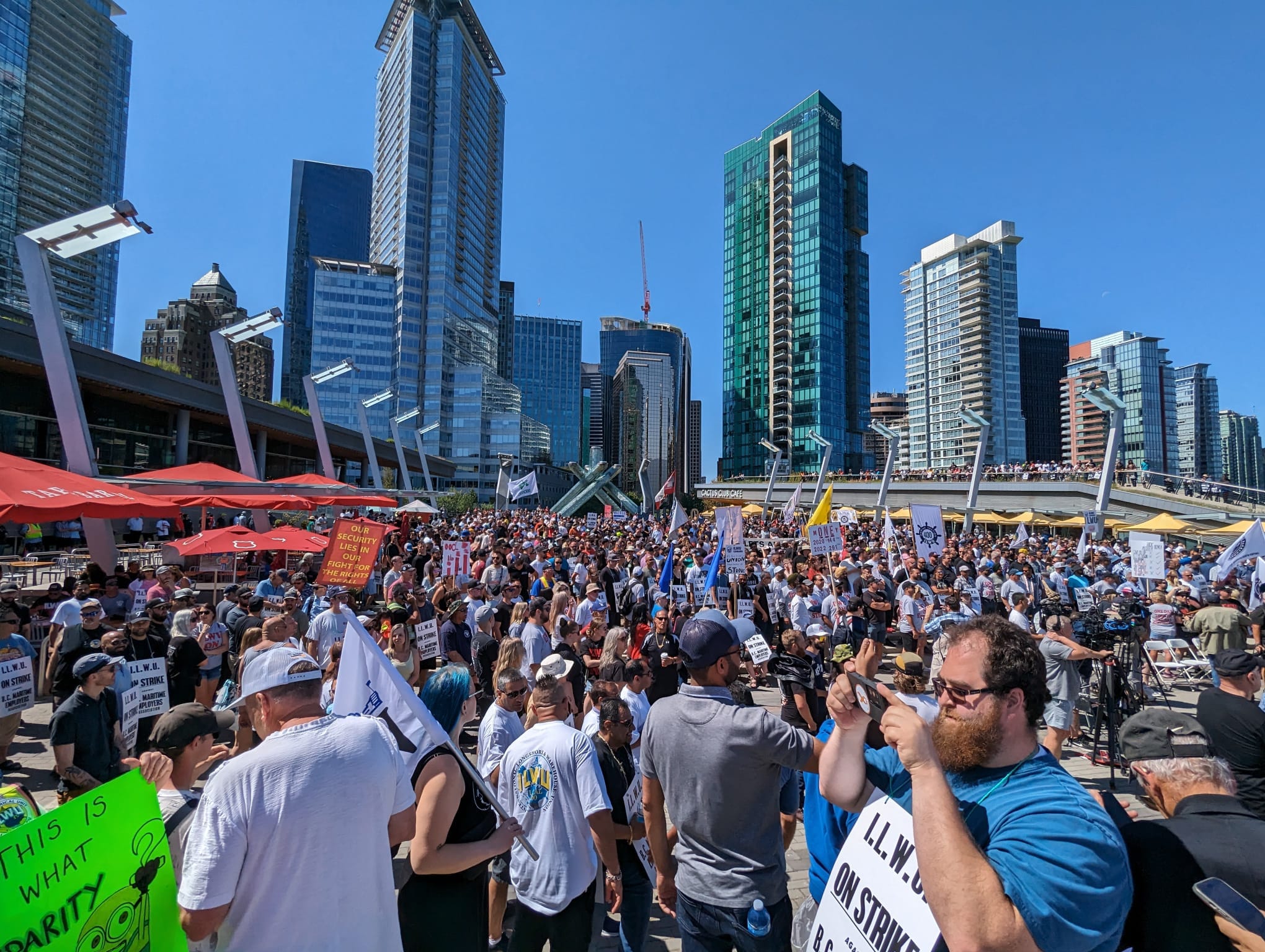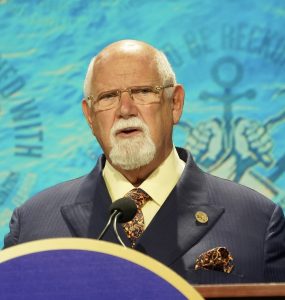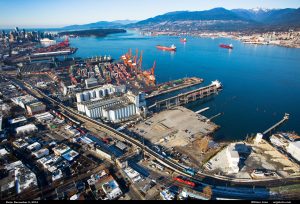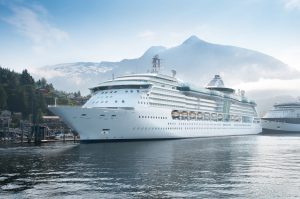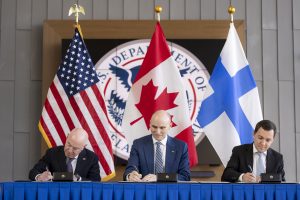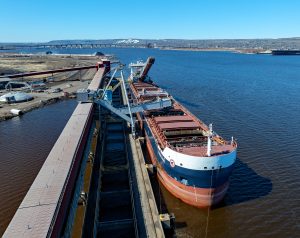In an effort to break a prolonged deadlock and get Canada’s 30 West Coast ports back to normal following a docker strike launched on July 1, the BC Maritime Employer’s Association (BCMEA) has tabled a revised proposal to resolve skilled trades shortages and address the demand of the International Longshore and Warehouse Union Canada to expand their jurisdiction over regular maintenance work on terminals.
The proposal was tabled on late Saturday, just prior to a big rally staged in Vancouver on Sunday where representatives from maritime unions in Australia, New Zealand, the Netherlands, the International Transport Workers Federation and elsewhere were among participants showing solidarity towards ILWU Canada’s 7,400 members. The International President of the ILWU, Willie Adams, provided extra support by stating that “the ILWU will not be unloading Canadian bound cargo in solidarity with our brothers and sisters in ILWU Canada.”
As the strike entered its 10th day, talks had not yet resumed and ILWU Canada has not yet responded to the revised proposal which includes additional language that opened the door for ILWU Canada to perform new work outside of the union’s jurisdiction.
The BCMEA has committed to increase benefits for casual trade persons; increase industry apprenticeships by a minimum of 15%; and create a tool allowance benefit for industry trades workers.
The proposal also includes convening a joint Maintenance Review sub-committee chaired by an independent arbitrator, agreed to by both Parties, to make recommendations to improve training, recruitment and retention of ILWU Canada trades workers; create binding industry guidance which defines which tasks, jobs and duties are defined as Regular Maintenance Work; and if the Chair concludes that the work in question is not Regular Maintenance Work, they may include non-binding recommendations to help Parties consider whether members of ILWU Canada bargaining unit could perform some or all of the maintenance work in question.
Furthermore, if member employers assigned ILWU Canada regular maintenance work outside of the bargaining unit following this process, the Union will be made whole for any missed work opportunities.
The BCMEA Bargaining Committee further proposed solutions such as a “contracting in” committee, and a joint compliance committee that ensures all Parties are following the terms of the agreement. All of these ideas aim to address ILWU Canada’s apparent concern with contracting the jobs they are unable to fill, yet they have not been amenable to any of them.
“Regrettably, ILWU Canada has rejected these ideas to date and instead, continue to propose to aggressively expand their jurisdiction,” the BCMEA said.
The Canadian Manufacturers & Exporters (CM&E) industry body has estimated the strike is disrupting $500 million in trade every day. Some 30 ports are implicated, but the ports of Vancouver and Prince Rupert, respectively the largest and third largest in Canada, alone account for nearly one quarter of Canadian import and export.
Amidst a looming supply chain crisis, both Canadian National (CN) and Canadian Pacific Kansas City (CPKC) have informed customers that they will not take some export cargoes to the ports of Prince Rupert and Vancouver. According to CPKC, the reason is to allow “traffic to move west while protecting network fluidity.”
A wide spectrum of Canadian business groups has called on the federal authorities to intervene by imposing back-to-work legislation, as Ottawa did in the Port of Montreal labour conflict in 2021, but thus far the Trudeau government has preferred to show faith in the collective bargaining process. In the meantime, the line-up of containerships waiting to be handled at Vancouver and Prince Rupert is growing daily.
(ILWU Canada photo of Vancouver rally)


